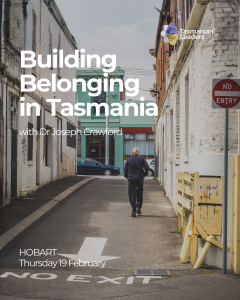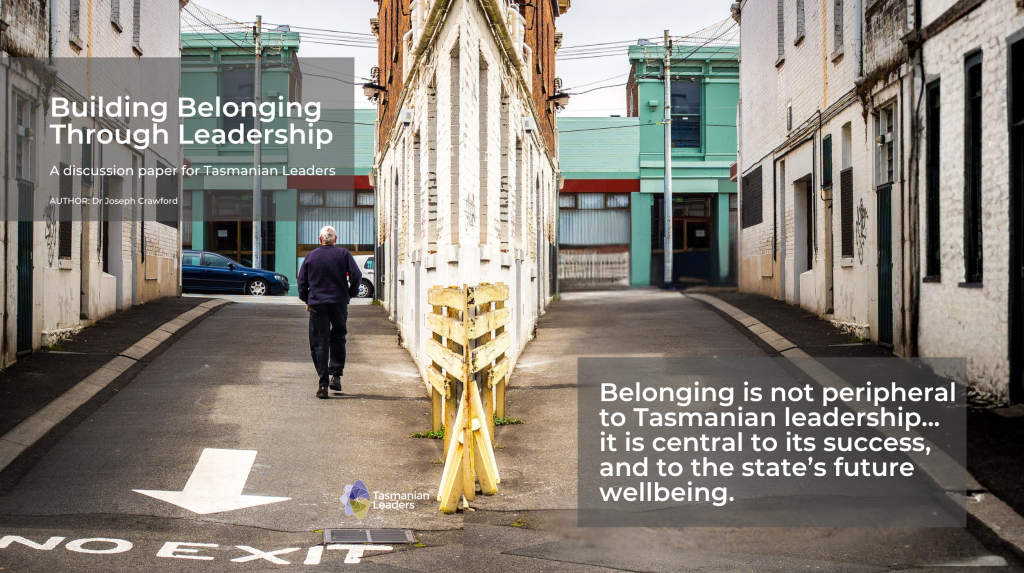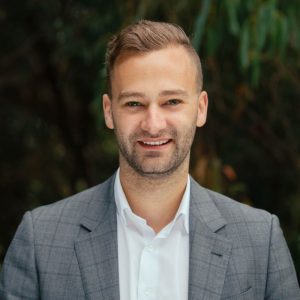Building Belonging Through Leadership : A discussion paper for Tasmanian Leaders
When belonging is weak, wellbeing declines, innovation slows, and communities begin to fragment.
Building Belonging Through Leadership : A discussion paper for Tasmanian leaders is our latest report by leading organisational behaviour academic Dr Joseph Crawford,
The report draws on insights gained from a one-day workshop held in late 2024 in Launceston with fourteen leaders from across Tasmania. Participants included managers and board directors from sectors spanning construction, not-for-profit, education, arts, government, and business. Further consultation was held with other leaders in Tasmania to assist in consolidating insights gained in the workshop.
The workshop asked leaders to explore when and where they most felt belonging; what belonging is – and what it is not; and how belonging might be built in workplaces and communities. Their lived experiences and insights were synthesised with contemporary research on belonging, loneliness, and social cohesion.
Belonging is complex. It is not simply joy or comfort. At times, belonging comes with accountability, challenge, and even conflict. While moments of belonging often feel positive (e.g., relaxed, content, connected), true belonging sometimes means being held to account, or sitting with tension, in the service of relationships that matter.
Building Belonging Through Leadership introduces the Tasmanian Belonging Framework, synthesising four dimensions of belonging described by leaders in the workshop as: Psychological Safety, Unconditional Vulnerability, Alignment of Identity and Place, and Boundaries of Belonging. Recommendations include practical strategies for leaders to build belonging, shaped by diverse perspectives and stress-tested across sectors, making them both contextually Tasmanian and broadly transferable.
Key takeaways:
- Tasmania reports its highest digital connectivity, and yet faces its greatest level of social disconnection and loneliness, with workplaces often struggling to create environments where people feel valued, connected, and productive.
- Hybrid work, transactional organisational cultures, and limited investment in evidence-based approaches mean that belonging is often left to chance. Leaders report that strategies are fragmented, with little clarity on what belonging really is, or how to foster it.
- Building belonging must be recognised as an essential leadership capability. Workplaces can be more than sites of employment; they can become sites of connection, growth, and community strength. Leaders who embed belonging will not only enhance organisational outcomes but will also contribute to the broader social fabric of Tasmania.



 Dr Joseph Crawford is a Senior Lecturer in Management at the
Dr Joseph Crawford is a Senior Lecturer in Management at the